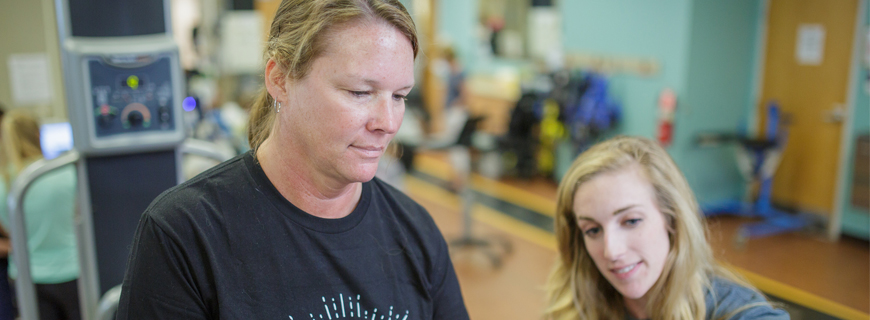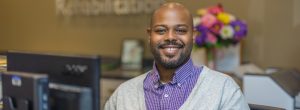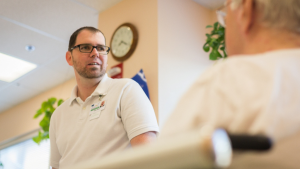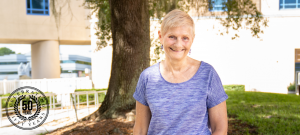Stroke Awakens a Desire to Help Others

Back to physical health resource hub
By: Kimberley Beth Robertson
On December 3, 2009, I survived a massive ischemic stroke on the right side of my brain. I woke up to use the bathroom and could not walk, or use my left arm or hand. I remember thinking that this was a mistake. I was only 41 years old and very healthy. I even went for a run earlier that evening. But then I blacked out.
I lived alone at this time. When friends and family hadn’t heard from me, my parents got worried and drove down to Tampa from Jacksonville. They found me unconscious on my apartment floor.
I did not receive treatment for approximately 22 hours after the stroke occurred. It does not take a medical doctor to comprehend how detrimental it can be for any part of the brain to go without oxygen for 22 hours. In short, it is not good.
I am blessed that I had no serious cognitive deficits from the stroke; most of its impact was physical. Doctors later told me I should not have survived. They also told me I would never walk again without some sort of assistive device such as a cane, walker, or brace.
During my recovery, I went through a period of depression and sought the help of a counselor. She helped me realize that life was going to be drastically different but undeniably, still worth living.
Through my experience in the hospital and physical rehabilitation, I met some truly amazing people who overcame incredible obstacles. I found they still loved the life they had been given, despite the fact that it differed greatly from what they had envisioned.
As I learned more about them and their unique stories, I discovered we all had one thing in common. Each of us experienced a really dark time after our respective injuries/illnesses. It was after this realization when I knew there was a profound need for counseling within this population. Some facilities have a psychiatrist/psychologist on staff; however, I found their lack of personal experience made it difficult to relate. At times, I felt like they did not “get it.”
Through discussions with my counselor and some exploration on my own, I began to realize my experience had awakened something in me—a desire to help others as I had been helped. Thus, I began the journey I am on now to become a Licensed Mental Health Counselor. My passion is Rehabilitation counseling, but all counseling is a bit rehabilitative in a sense.
Sharing my journey is intense and emotional for me. Every time I tell my story, I have to relive it, which is painful. After six years of intensive physical rehabilitation, I have once again defied the odds. Despite a noticeable limp, I am walking without any sort of assistive device [insert victory dance here], and I continue to make progress on my arm and hand. Since this awful ordeal began, it has been my goal to recover to the point that no one will be able to tell I ever had a stroke.
Although I still have a long way to go in my recovery, I can honestly say that I am proud of all the hard work and progress I have made thus far. I hope my story will inspire others someday. Along this post-stroke part of my life, I frequently tell others that they have two choices after tragedy: fight or die. My wish is that someday I might be able to impart this same message to my clients.
Brooks Rehabilitation is proud to honor Beth as one of our 2016 Faces of Stroke for her courageous journey to recovery and the commitment she has towards helping others.


